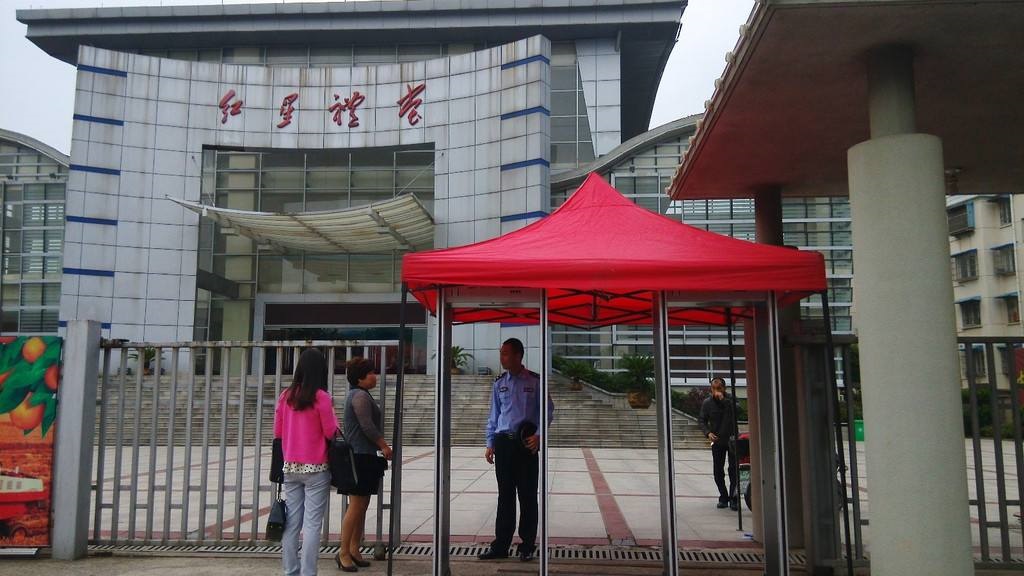METAL DETECTORS IN SCHOOLS: HOW FEASIBLE IS THE IDEA?
SHOULD MORE SCHOOLS USE SECURITY METAL DETECTORS?
We've been walking through metal detectors at airplane terminal security checkpoints for a considerable length of time and exposing ourselves to comparable screenings and searches at the sport arenas and concerts.
In any case, the utilization of metal detectors in schools has been constrained for the most part to enormous, urban areas with set up records of weapons-related issues. New York City's Education Department, for instance, introduced its first metal detector in 1988 and right now runs screenings in over ninety buildings.
Well, security metal detectors might not be essential for use in mist government funded schools. It is important firstly to gauge the extent to which the school is prone to weapon risks against the cost of implementation of such security devices.
Also, a discussion about whether the detectors make a more secure condition or a dreadful, prison-like one.
COSTS
A stationary metal detector can cost somewhere in the range of $1,000 to $30,000. Models in the $4,000 to $5,000 territory regularly offer features most appropriate for a school system, as indicated by a report from the National Institute of Justice.
Be that as it may, the underlying equipment costs just recount to part of the story. You likewise need to consider operational and support costs:
Employing security personnel to work the equipment
Giving continuous training to security staff
Equipment repairs and maintenance
Replacing damaged equipment
... And the list goes on.
SECURITY METAL DETECTOR OPERATIONAL ISSUES PROMPT MANY QUESTIONS
Metal identification systems can surely fill in as a risk reduction equipment, however Ken Trump, school safety advisor and leader of National School Safety and Security Services, accepts the best school safety projects need to work 24 hours per day, 7 days weekly to keep individuals from entering the school and either putting away or utilizing weapons during non-screening hours.
You have to gauge the achievability of a working equipment against the dangers of working it irregularly:
If you just screen students before the beginning of the school day, what happens when students arrive later in the day?
Will you screen all staff and personnel?
Shouldn't something be said about guests?
Will you work the metal detectors during after-school exercises or night occasions?
You need to think about other strategic issues, too:
1. In what capacity will you secure different purposes of passage, including entryways and first-floor windows, so you can channel students, staff and guests through the primary passageway?
2. Would you be able to screen hundreds, maybe thousands, of students each day and still begin the school day on schedule?
3. Is it sensible to install lasting walk through metal detectors or portable models to conduct security checks?
4. ARCHWAY METAL DETECTORS EFFECTIVE IN SCHOOLS?
The discussion proceeds about whether school metal detector programs really work and whether they make students have a sense of security or on the edge.
Advocators feel administrators ought to do all that they can to make schools more secure – whatever it takes. What's more, frequently, parents push for metal detectors after a weapons-related episode in their kid's school area, a prominent assault at another school or a general inclination that their school may be unsafe.
Metal detector projects have demonstrated viable in some huge, urban regions.

Critics, in any case, stated that metal detector programs just serve to make a threatening, prison-like atmosphere that makes students restless and does little to stop the progression of weapons into a school. Some even said the equipment violates students' Fourth Amendment Rights with respect to unreasonable seizures and searches.
Rather, numerous specialists prompt that schools ought to put resources into an exhaustive security plan that incorporates the most recent training for staff to diffuse a threat all the more rapidly.
CONSIDER METAL DETECTORS IN TERMS OF A LARGER SECURITY PLAN
No safety effort offers a 100-percent safety assurance. So as you take a look at the possibility of a metal detector program for your schools, think about how this one equipment will fit into a bigger security plan and make sure to oversee desires among students, staff and the whole network.
The best school safety plans include close joint effort with nearby law enforcement agencies, cultivate open communication with and among students and personnel, and accentuate legitimate training for all stakeholders.
Metal detector projects can decrease the danger of weapons-related issues for some specific schools, yet they can't work in a vacuum. You have to take a look at some components as you detail a bigger security plan:
---Secure passages
---Bullet proof doors and windows
---Surveillance cameras in key grounds areas
---Provisions for announcing suspicious movement, utilizing ID cards to get access, and so on.
---Lock-down drills for students and staff
---Use of school resource officials to oversee security
... And the list goes on.
If you choose to implement a security metal detector program for your school, ensure you plainly explain the uses, dos and don'ts of the innovation to students, staff, parents and all. Concerned parents and individuals are frequently anxious for a speedy solution, yet metal detectors, similar to any security innovation, aren't sure fire ways. They don't cure all.